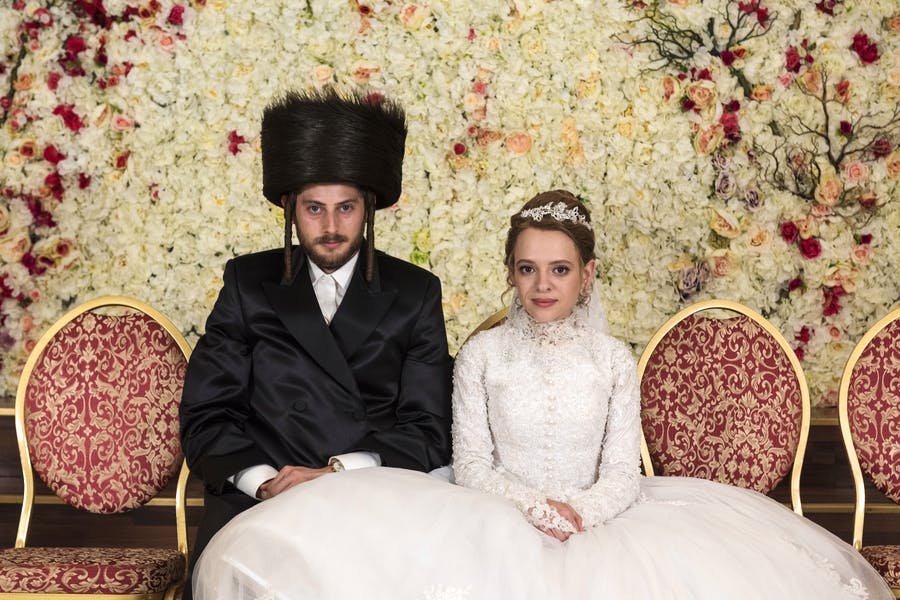A few blocks away are hipster-dense streets with street art and coffee shops. But around Lee Avenue in Williamsburg, it’s as if time has stood still.
Men in white knee socks, high hats and coats from another century rush by. Women wearing wigs or shawls on their heads. Here are kosher grocery stores, synagogues and a mikvah – a ritual Jewish bath. It is an enclave few outsiders get real insight into.
In the middle of the New York City, the Hasidic community – fundamentalist ultra-Orthodox Jews – practice strict gender segregation, distancing themselves from Western modern society without television, cinema and pop music.
This is the environment in which 19-year-old Esty grows up in Netflix’s new series Unorthodox. After getting married, she chooses to flee to liberal Berlin to start a new life. Soon a cat-and-mouse race begins when her husband tries to bring her home again.
The show, based on a memoir by Deborah Feldman, has been hailed for its precise and detailed portrayal of the otherwise closed group Satmar in Williamsburg.

Britain’s best politics newsletters
You get two free articles each week when you sign up to The Spectator’s emails.
Already a subscriber? Log in






Comments
Join the debate for just £1 a month
Be part of the conversation with other Spectator readers by getting your first three months for £3.
UNLOCK ACCESS Just £1 a monthAlready a subscriber? Log in